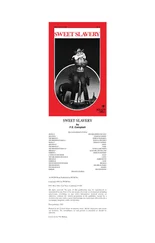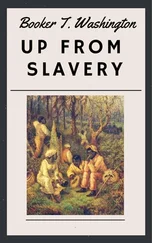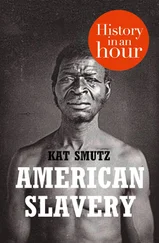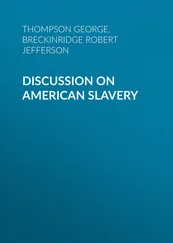Theodore Dwight Weld - American Slavery as It is - Testimonies
Здесь есть возможность читать онлайн «Theodore Dwight Weld - American Slavery as It is - Testimonies» — ознакомительный отрывок электронной книги совершенно бесплатно, а после прочтения отрывка купить полную версию. В некоторых случаях можно слушать аудио, скачать через торрент в формате fb2 и присутствует краткое содержание. Жанр: unrecognised, на английском языке. Описание произведения, (предисловие) а так же отзывы посетителей доступны на портале библиотеки ЛибКат.
- Название:American Slavery as It is: Testimonies
- Автор:
- Жанр:
- Год:неизвестен
- ISBN:нет данных
- Рейтинг книги:4 / 5. Голосов: 1
-
Избранное:Добавить в избранное
- Отзывы:
-
Ваша оценка:
- 80
- 1
- 2
- 3
- 4
- 5
American Slavery as It is: Testimonies: краткое содержание, описание и аннотация
Предлагаем к чтению аннотацию, описание, краткое содержание или предисловие (зависит от того, что написал сам автор книги «American Slavery as It is: Testimonies»). Если вы не нашли необходимую информацию о книге — напишите в комментариях, мы постараемся отыскать её.
"American Slavery As It Is" is a book composed of first-hand accounts of slavery and its horrors. The work focuses on the afflictions that slaves faced, covering their diet, clothing, housing, and working conditions. Harriet Beecher Stowe used «American Slavery As It Is» as the direct inspiration for her novel, Uncle Tom's Cabin.
American Slavery as It is: Testimonies — читать онлайн ознакомительный отрывок
Ниже представлен текст книги, разбитый по страницам. Система сохранения места последней прочитанной страницы, позволяет с удобством читать онлайн бесплатно книгу «American Slavery as It is: Testimonies», без необходимости каждый раз заново искать на чём Вы остановились. Поставьте закладку, и сможете в любой момент перейти на страницу, на которой закончили чтение.
Интервал:
Закладка:
It is no marvel that slaveholders are always talking of their kind treatment of their slaves. The only marvel is, that men of sense can be gulled by such professions. Despots always insist that they are merciful. The greatest tyrants that ever dripped with blood have assumed the titles of "most gracious," "most clement," "most merciful," &c., and have ordered their crouching vassals to accost them thus. When did not vice lay claim to those virtues which are the opposites of its habitual crimes? The guilty, according to their own showing, are always innocent, and cowards brave, and drunkards sober, and harlots chaste, and pickpockets honest to a fault. Every body understands this. When a man's tongue grows thick, and he begins to hiccough and walk cross-legged, we expect him, as a matter of course, to protest that he is not drunk; so when a man is always singing the praises of his own honesty, we instinctively watch his movements and look out for our pocket-books. Whoever is simple enough to be hoaxed by such professions, should never be trusted in the streets without somebody to take care of him. Human nature works out in slaveholders just as it does in other men, and in American slaveholders just as in English, French, Turkish, Algerine, Roman and Grecian. The Spartans boasted of their kindness to their slaves, while they whipped them to death by thousands at the altars of their gods. The Romans lauded their own mild treatment of their bondmen, while they branded their names on their flesh with hot irons, and when old, threw them into their fish ponds, or like Cato "the Just," starved them to death. It is the boast of the Turks that they treat their slaves as though they were their children, yet their common name for them is "dogs," and for the merest trifles, their feet are bastinadoed to a jelly, or their heads clipped off with the scimetar. The Portuguese pride themselves on their gentle bearing toward their slaves, yet the streets of Rio Janeiro are filled with naked men and women yoked in pairs to carts and wagons, and whipped by drivers like beasts of burden.
Slaveholders, the world over, have sung the praises of their tender mercies towards their slaves. Even the wretches that plied the African slave trade, tried to rebut Clarkson's proofs of their cruelties, by speeches, affidavits, and published pamphlets, setting forth the accommodations of the "middle passage," and their kind attentions to the comfort of those whom they had stolen from their homes, and kept stowed away under hatches, during a voyage of four thousand miles. So, according to the testimony of the autocrat of the Russias, he exercises great clemency towards the Poles, though he exiles them by thousands to the snows of Siberia, and tramples them down by millions, at home. Who discredits the atrocities perpetrated by Ovando in Hispaniola, Pizarro in Peru, and Cortez in Mexico,--because they filled the ears of the Spanish Court with protestations of their benignant rule? While they were yoking the enslaved natives like beasts to the draught, working them to death by thousands in their mines, hunting them with bloodhounds, torturing them on racks, and broiling them on beds of coals, their representations to the mother country teemed with eulogies of their parental sway! The bloody atrocities of Philip II., in the expulsion of his Moorish subjects, are matters of imperishable history. Who disbelieves or doubts them? And yet his courtiers magnified his virtues and chanted his clemency and his mercy, while the wail of a million victims, smitten down by a tempest of fire and slaughter let loose at his bidding, rose above the Te Deums that thundered from all Spain's cathedrals. When Louis XIV. revoked the edict of Nantz, and proclaimed two millions of his subjects free plunder for persecution,--when from the English channel to the Pyrennees the mangled bodies of the Protestants were dragged on reeking hurdles by a shouting populace, he claimed to be "the father of his people," and wrote himself "His most Christian Majesty."
But we will not anticipate topics, the full discussion of which more naturally follows than precedes the inquiry into the actual condition and treatment of slaves in the United States.
As slaveholders and their apologists are volunteer witnesses in their own cause, and are flooding the world with testimony that their slaves are kindly treated; that they are well fed, well clothed, well housed, well lodged, moderately worked, and bountifully provided with all things needful for their comfort, we propose--first, to disprove their assertions by the testimony of a multitude of impartial witnesses, and then to put slaveholders themselves through a course of cross-questioning which shall draw their condemnation out of their own mouths. We will prove that the slaves in the United States are treated with barbarous inhumanity; that they are overworked, underfed, wretchedly clad and lodged, and have insufficient sleep; that they are often made to wear round their necks iron collars armed with prongs, to drag heavy chains and weights at their feet while working in the field, and to wear yokes, and bells, and iron horns; that they are often kept confined in the stocks day and night for weeks together, made to wear gags in their mouths for hours or days, have some of their front teeth torn out or broken off, that they may be easily detected when they run away; that they are frequently flogged with terrible severity, have red pepper rubbed into their lacerated flesh, and hot brine, spirits of turpentine, &c., poured over the gashes to increase the torture; that they are often stripped naked, their backs and limbs cut with knives, bruised and mangled by scores and hundreds of blows with the paddle, and terribly torn by the claws of cats, drawn over them by their tormentors; that they are often hunted with blood hounds and shot down like beasts, or torn in pieces by dogs; that they are often suspended by the arms and whipped and beaten till they faint, and when revived by restoratives, beaten again till they faint, and sometimes till they die; that their ears are often cut off, their eyes knocked out, their bones broken, their flesh branded with red hot irons; that they are maimed, mutilated and burned to death over slow fires. All these things, and more, and worse, we shall prove. Reader, we know whereof we affirm, we have weighed it well; more and worse WE WILL PROVE. Mark these words, and read on; we will establish all these facts by the testimony of scores and hundreds of eye witnesses, by the testimony of slaveholders in all parts of the slave states, by slaveholding members of Congress and of state legislatures, by ambassadors to foreign courts, by judges, by doctors of divinity, and clergymen of all denominations, by merchants, mechanies, lawyers and physicians, by presidents and professors in colleges and professional seminaries, by planters, overseers and drivers. We shall show, not merely that such deeds are committed, but that they are frequent; not done in corners, but before the sun; not in one of the slave states, but in all of them; not perpetrated by brutal overseers and drivers merely, but by magistrates, by legislators, by professors of religion, by preachers of the gospel, by governors of states, by "gentlemen of property and standing," and by delicate females moving in the "highest circles of society." We know, full well, the outcry that will be made by multitudes, at these declarations; the multiform cavils, the flat denials, the charges of "exaggeration" and "falsehood" so often bandied, the sneers of affected contempt at the credulity that can believe such things, and the rage and imprecations against those who give them currency. We know, too, the threadbare sophistries by which slaveholders and their apologists seek to evade such testimony. If they admit that such deeds are committed, they tell us that they are exceedingly rare, and therefore furnish no grounds for judging of the general treatment of slaves; that occasionally a brutal wretch in the free states barbarously butchers his wife, but that no one thinks of inferring from that, the general treatment of wives at the North and West.
Читать дальшеИнтервал:
Закладка:
Похожие книги на «American Slavery as It is: Testimonies»
Представляем Вашему вниманию похожие книги на «American Slavery as It is: Testimonies» списком для выбора. Мы отобрали схожую по названию и смыслу литературу в надежде предоставить читателям больше вариантов отыскать новые, интересные, ещё непрочитанные произведения.
Обсуждение, отзывы о книге «American Slavery as It is: Testimonies» и просто собственные мнения читателей. Оставьте ваши комментарии, напишите, что Вы думаете о произведении, его смысле или главных героях. Укажите что конкретно понравилось, а что нет, и почему Вы так считаете.












